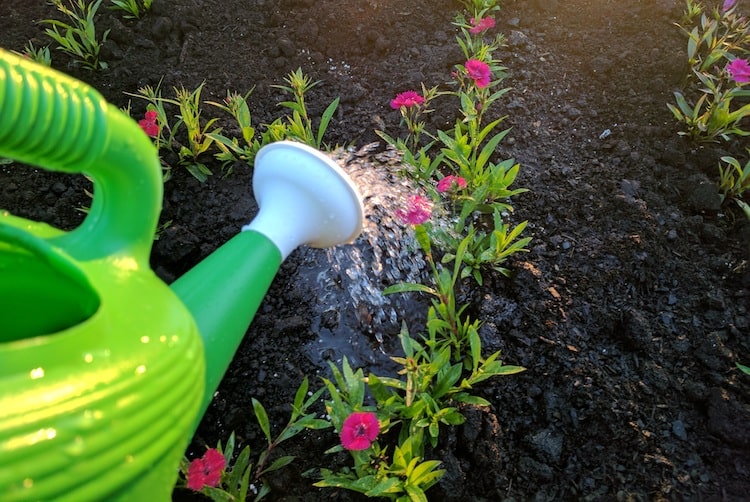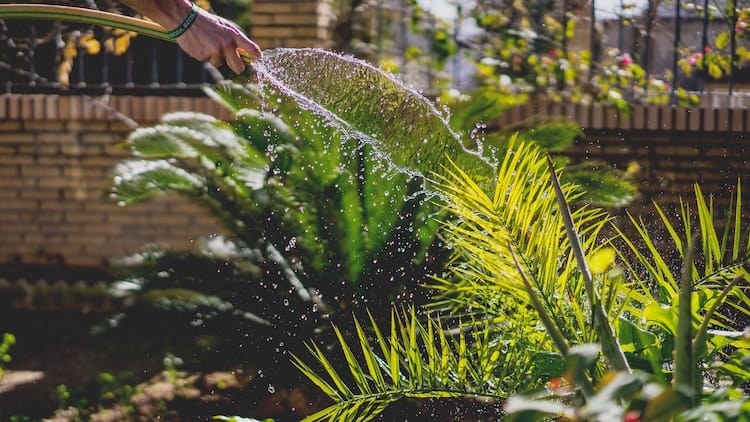When it comes to watering a garden, one question that growers always ask is "how often should I water my garden?" or "how much water does a garden need?"
The truth is, there are no fixed rules when it comes to watering a garden, but a combination of some vital factors comes into play.
These factors include the type of garden soil, weather, or climate condition, and growth stage of the plants.
While watering is essential, overwatering also increase your plant's exposure to diseases and plant infections.
Read on to find out best practices for watering your garden.
Table of Contents
How Often Should I Water My Garden?
A general rule states that you should at least water your garden two inches per week.
However, the amount of water you should give your plants and the frequency is dependent on several factors, which we will look at below.
Factors to Consider When Watering a Garden
Having discussed the best watering frequency for a garden, below are some of the factors that will always determine how often you should water your garden.
Read Also: How Often Should You Water Indoor Plants?
The Type of Plant Soil
When considering how often you should water your garden, it is vital to consider carefully the type of soil used in your garden.
Clay soil usually has a high weight and does a great job of holding moisture for more extended periods.
In contrast, sandy soil has a lighter texture that makes it contains less water than clay soil, and water tends to evaporate from it faster.
Bad soil quality is the startup recipe for a poor performance in plants. The amount of water your plant receives won't matter much if the soil receiving is in a bad state.
For this reason, is why good soil quality is essential before planting.
The quality of the soil affects its ability to uphold water when watered. An excellent way to improve the quality of your soil is to apply nutrient-filled compost.
Using a great deal of compost before rooting plants into the soil will help improve the soil quality.
The more nutritious your soil is for the plants, the more likely it is to retain water.
Before watering your garden, ensure to check the soil. If it feels soggy or wet to the touch, this shows that your garden does not need water yet.
But, if the soil feels dry or too coarse, then it needs moisture.
It is essential to be able to strike a balance between not too dry and not too wet, ensure you don't allow the soil dry out totally, and it may cause further damage.
Read Also: How To Fix An Overwatered Plant
The Type of Plant
Before watering your plants, it is essential to know your plants and their watering requirement.
The type of plants will determine the frequency of watering them.
If you are growing desert plants, they are not used to frequent watering, but in the case of raising rain forest plants, you may want to double up their water intake.
Generally, larger plants require more water than smaller ones.
For potted plants, especially plants potted in a less porous material. When overwatered, the soil may over absorb water, leading to a pool of stagnant water forming at the base of the pot.
A simple trick is to slightly pock a finger into the soil to be sure of the condition of the soil.
Does the time of the day affect how I should water my garden?
The early hours of the day are usually the best time to water your garden, unusually early mornings.
Often in the early morning, is when the weather is cold outside, and there is less sunlight, and this condition allows the soil to absorb the water properly without evaporating.
In the middle of the day, there is always sunlight present; this may cause some water to evaporate.
If watering in the morning is not achievable by you, late evenings, or whenever the sun is setting is another best alternative.
Best Watering Practices for your Garden
- Use quality soil
- Avoid waterlogging
- Distribute water evenly
- Make the water reaches the roots
- Make use of the right watering equipment
- Do not water leaves: Keep leaves dry to avoid diseases
- Water early in the morning or late in the evening
- Water less often but thoroughly and in large quantities in some areas
- Keep all areas of the soil evenly moist
Read Also: When To Plant Mustard Greens
Conclusion
We know you love your plants but don't over pamper them; plants are very adaptable, and they can draw water from their soil with the help of their roots.
So, watering your plants when they don't need it will cause more harm than good. Garden plants have different moisture requirements needed to stay alive.
Different plant types tend to absorb water at various stages, depending on their stage of growth.
Using the tips in this guide will solve your question on how often you should water your plants and also help you strike a balance between overwatering and under watering and reach an optimum plant growth.







Leave a Reply